


If you’re craving a place where the ocean’s rhythm feels like a heartbeat beneath your feet,Bingin Beach in Indonesia is where you want to be. It’s not just a beach; it’s a mood—a laid-back,sun-drenched sanctuary where the waves curl perfectly for surfers and the sunsets paint the sky in fiery oranges and pinks. When you arrive,you’ll immediately notice the salty breeze mingling with the scent of frangipani and tropical blooms,wrapping around you like a warm welcome. The vibe here is effortlessly cool but deeply authentic. Locals and travelers alike share smiles over fresh coconut water or spicy nasi goreng at tiny warungs perched on the cliffs. The soundscape is a soothing mix of crashing waves,distant laughter,and the occasional strum of a guitar. Walking down the narrow paths,you’ll find rustic cafes with hammocks swaying gently,where time seems to slow and worries melt away. What makes Bingin truly special is its blend of raw natural beauty and intimate community spirit. The beach itself is framed by dramatic limestone cliffs,and the water is a clear turquoise playground for snorkelers and surfers. Evenings invite you to savor freshly grilled seafood under a canopy of stars,sharing stories with new friends. It’s a place that feels like a secret handshake among those who’ve been lucky enough to discover it—a spot that stays with you long after you’ve left.
The information on this page is currently being reviewed by Tripkliq and should be used as a guide only
Eng word: Hello
Eng pronunciation: HAH-loh
Local language: Halo
Eng word: Goodbye
Eng pronunciation: suh-LAH-maht TING-gahl
Local language: Selamat tinggal
Eng word: Thank you
Eng pronunciation: teh-REE-mah KAH-see
Local language: Terima kasih
Eng word: How much
Eng pronunciation: buh-RAH-pah
Local language: Berapa
Eng word: Toilet
Eng pronunciation: TOY-let
Local language: Toilet
Eng word: Help me
Eng pronunciation: TOH-long SAH-yah
Local language: Tolong saya
Eng word: Yes
Eng pronunciation: YAH
Local language: Ya
Eng word: No
Eng pronunciation: TEE-dahk
Local language: Tidak
Eng word: Excuse me
Eng pronunciation: puhr-MEE-see
Local language: Permisi
Bingin Beach was discovered by surfers in the 1970s, who were drawn to its perfect waves and stunning natural beauty. It quickly became a hidden gem for those in the know.
Bingin Beach is located in the Pecatu area, which is rich in traditional Balinese culture. Visitors can experience local customs, ceremonies, and the unique architecture of Balinese temples.
Bingin Beach is renowned for its world-class surfing conditions. The consistent waves and reef breaks have made it a favorite spot for both amateur and professional surfers from around the globe.
In recent years, Bingin Beach has become a model for eco-friendly tourism. Many local businesses and accommodations have adopted sustainable practices to preserve the natural beauty of the area.
The beach is famous for its stunning cliffside views. Visitors can enjoy breathtaking panoramas of the Indian Ocean from various vantage points along the cliffs.
The waters around Bingin Beach are teeming with marine life. Snorkelers and divers can explore vibrant coral reefs and encounter a variety of tropical fish species.
Bingin Beach offers a taste of authentic Balinese cuisine. Local warungs (small family-owned restaurants) serve delicious dishes made from fresh, locally-sourced ingredients.
The serene environment of Bingin Beach has made it a popular destination for yoga and wellness retreats. Many visitors come to practice yoga, meditate, and rejuvenate in the tranquil surroundings.
The area around Bingin Beach is home to many talented local artisans. Visitors can purchase unique handmade crafts, including traditional Balinese textiles, jewelry, and artwork.
In Bingin Beach, the most common Power Adaptor is Type C, Type F.


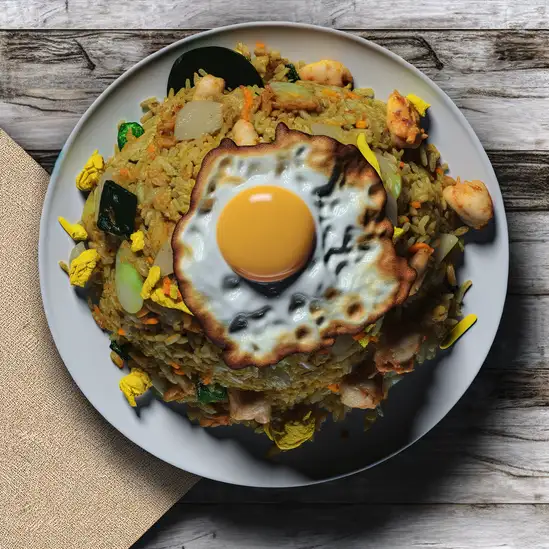
A flavorful fried rice dish often served with vegetables, chicken, or seafood, and topped with a fried egg.

A Balinese specialty made from minced meat mixed with grated coconut and spices, wrapped around bamboo sticks and grilled.
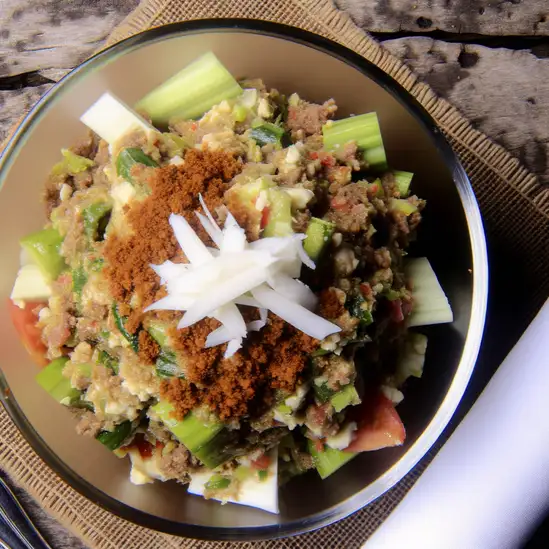
A traditional mix made from vegetables, coconut, and minced meat, often served as a side dish.
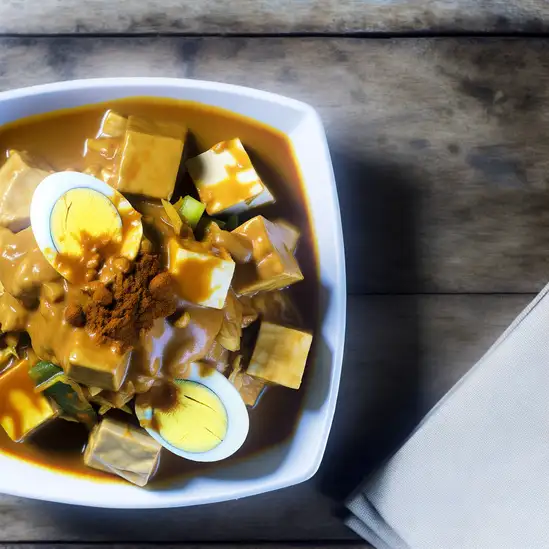
A traditional salad made with boiled vegetables, tofu, and hard-boiled eggs, served with a rich peanut sauce.
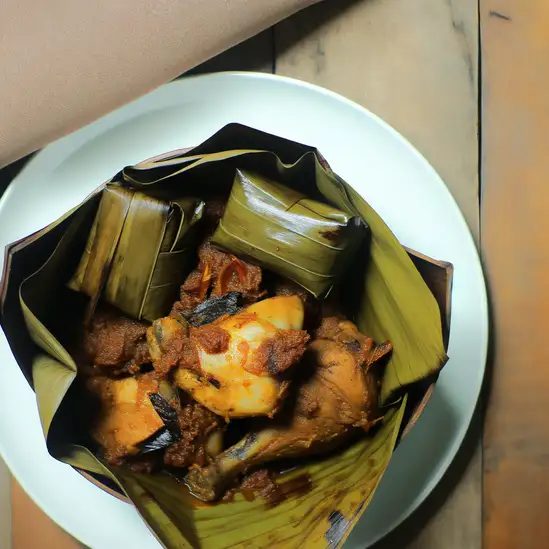
Spicy Balinese chicken dish that is marinated with a mixture of spices and then wrapped in banana leaves before being roasted.
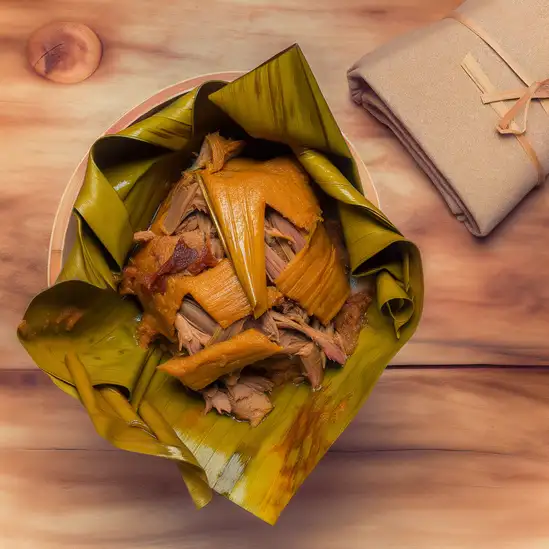
Slow-cooked duck marinated with a blend of spices and wrapped in banana leaves, resulting in tender and flavorful meat.

Fish marinated in spices, wrapped in banana leaves, and steamed or grilled, resulting in a fragrant and moist dish.
Denpasar has this vibrant,lived-in energy that instantly pulls you in. It’s not the polished tourist hub you might expect from Bali,but rather the bustling heart where locals go about their daily lives with warmth and rhythm. Walking through its streets,you’ll hear the hum of motorbikes weaving through traffic,the chatter of market vendors calling out fresh produce,and the occasional clang of temple bells weaving into the city’s soundtrack. The air carries a mix of fragrant spices,sizzling street food,and the earthy scent of incense from nearby shrines.
What I love most about Denpasar is how it feels like a genuine slice of Balinese culture. The city pulses with tradition—colorful ceremonies unfold in the temples,and you’ll spot locals dressed in sarongs,carrying offerings with quiet reverence. At the same time,there’s a youthful buzz in the cafes and art spaces,where creativity bubbles alongside age-old customs. It’s a place where you can savor a plate of spicy babi guling from a humble warung,then wander through the art markets filled with intricate wood carvings and vibrant paintings.
Denpasar invites you to slow down and soak in the everyday magic—the warmth of the people,the rich smells,and the lively streets. It’s a city that doesn’t shout for attention but rewards those who take the time to explore its layers. If you want to experience Bali beyond the beaches,Denpasar offers a genuine,colorful glimpse into the island’s soul.
If you ever find yourself craving a place where time slows down just enough to savor every moment,Ubud is that kind of sanctuary. Nestled in the lush heart of Bali,this town hums with a gentle rhythm—part spiritual retreat,part creative hub. Walking through its streets,you’ll catch the scent of frangipani and incense mingling with the earthy aroma of wet rice fields nearby. The air feels alive,filled with the soft chatter of locals,the distant clink of gamelan music,and the occasional call of a rooster greeting the dawn.
Ubud’s charm lies in its seamless blend of tradition and artistry. Temples with intricate stone carvings peek through vibrant greenery,while open-air markets burst with colorful textiles,hand-carved masks,and fresh tropical fruits. You can sip on a rich,earthy cup of Balinese coffee at a cozy café,watching artisans craft delicate silver jewelry or dancers rehearsing for an evening performance. It’s a place where culture isn’t just observed—it’s lived and breathed.
What really stays with you is the warmth of the people and the sense of connection to nature and spirit. Whether you’re wandering through the terraced rice paddies,joining a yoga class overlooking the jungle,or simply sitting by the Campuhan Ridge Trail at sunset,Ubud invites you to slow down,breathe deeply,and soak in a world that feels both ancient and vibrantly alive.
Imagine stepping into a place where the ocean breeze carries the scent of salt and frangipani,and the rhythm of traditional gamelan music hums softly in the background. That’s Lombok for you—a vibrant island that feels both alive and laid-back at the same time. Unlike its flashier neighbor Bali,Lombok has this raw,untouched charm that invites you to slow down and really soak in the moment. The beaches here aren’t just pretty; they’re vast stretches of powdery white sand meeting turquoise waves that seem to whisper stories of ancient fishermen and island life.
Walking through the local markets,you’ll hear the lively chatter of vendors selling fresh spices,tropical fruits,and handwoven textiles. The air is thick with the aroma of grilled satay and sweet coconut,tempting you to try every bite. The Sasak people,with their warm smiles and rich traditions,add a deep cultural layer to the island’s character. You might catch a glimpse of their intricate weaving or hear tales of their unique ceremonies,which feel like a bridge between past and present.
What really stays with you about Lombok is its balance—between adventure and tranquility,nature and culture. Whether you’re hiking up Mount Rinjani’s misty slopes,diving into vibrant coral reefs,or simply sipping a fresh coconut by a quiet beach,there’s a genuine sense of connection here. It’s a place that doesn’t just fill your camera roll but leaves a quiet imprint on your heart.
If you find yourself wandering through Kota Administrasi Jakarta Pusat,you’ll immediately notice the pulse of a city that’s both historic and buzzing with modern energy. It’s a place where colonial-era buildings stand shoulder to shoulder with sleek skyscrapers,creating a fascinating blend of old and new. Walking down the streets,you can almost hear the echoes of history mingling with the chatter of office workers and street vendors. The air carries a mix of aromas—from the rich,spicy scent of street food stalls grilling satay to the faint,comforting smell of freshly brewed kopi from tiny warungs tucked in corners.
What really makes Jakarta Pusat special is its vibrant character. It’s the heart of the city’s administrative and cultural life,so you’ll find a lively mix of people—government officials,artists,students,and families—all weaving their stories into the urban fabric. The bustling markets,like Pasar Baru,invite you to haggle over colorful textiles and local snacks,while nearby museums and galleries offer a quiet retreat into Indonesia’s rich heritage.
There’s a rhythm here that’s both fast-paced and inviting. Whether you’re sipping a sweet es cendol under the shade of a tree in Merdeka Square or catching the golden light reflecting off the National Monument at dusk,Jakarta Pusat feels alive in a way that’s deeply human and endlessly fascinating. It’s a city that invites you to slow down,look around,and soak in the layers of life unfolding all at once.
Labuan Bajo feels like stepping into a vibrant postcard where the sea meets rugged hills,and every sunset paints the sky in fiery oranges and pinks. When you arrive,there’s this laid-back energy that wraps around you—locals chatting over fresh fish markets,the salty breeze mingling with the scent of tropical flowers,and boats bobbing gently in the harbor. It’s a place where time slows down just enough for you to soak in the simple beauty of island life.
Walking through the town,you’ll hear the lively chatter of fishermen,the clinking of glasses at cozy beachfront cafes,and the distant call of exotic birds. The streets are dotted with colorful warungs serving up spicy sambal and freshly grilled seafood that tastes like it was caught just moments ago. There’s a warmth in the smiles of the people here,a genuine friendliness that makes you feel instantly welcome.
What really sets Labuan Bajo apart is its gateway to the Komodo National Park. Beyond the town’s charm,you can dive into crystal-clear waters teeming with vibrant coral reefs or trek through dry savannahs to spot the legendary Komodo dragons. It’s a place where adventure and tranquility coexist,where you can lose yourself in nature’s wonders and then return to a hammock overlooking the calm sea,feeling utterly content. Trust me,Labuan Bajo isn’t just a destination—it’s an experience that stays with you long after you leave.
Surabaya pulses with an energy that’s both vibrant and welcoming,a city where history and modern life dance side by side. As you wander through its bustling streets,you’ll catch the scent of sizzling satay mingling with the salty breeze from the nearby harbor. The city hums with the chatter of locals bargaining in lively markets,the clatter of motorbikes weaving through traffic,and the distant call of street vendors selling fresh tropical fruits. It’s a place where every corner tells a story—from colonial-era buildings standing proudly alongside sleek skyscrapers to colorful murals that splash life onto old walls.
What really makes Surabaya special is its character:tough yet warm,a city that’s seen its share of history but never lost its heart. The people here are fiercely proud and incredibly friendly,always ready to share a smile or a recommendation for the best local warung. Dive into the food scene and you’ll find yourself savoring rich,spicy flavors—like the famous rawon,a dark beef soup that’s both comforting and bold,or the sweet,sticky lontong balap that fills the air with fragrant spices.
Evenings in Surabaya have their own magic. The city lights flicker on,and the streets fill with the sounds of gamelan music drifting from cultural performances or the laughter spilling out of cozy cafes. Whether you’re exploring the historic old town or simply sipping kopi on a street corner,Surabaya invites you to slow down,soak in its layers,and feel the heartbeat of a city that’s alive in every sense.
Tourists are asked to pay a deposit for accommodations, but the property either doesn't exist or is in poor condition upon arrival.
Money changers offer attractive exchange rates but shortchange tourists by using sleight of hand or hidden fees.
Locals posing as parking attendants charge tourists for parking in free public areas, claiming it's an official fee.
Scammers sell fake tickets to popular attractions or events, leaving tourists unable to enter.
Unlicensed individuals pose as tour guides, offering subpar or incomplete tours for high prices.
Some beachside vendors charge tourists significantly higher prices for food and drinks compared to locals.
Tourists are accused of damaging rented motorbikes, even if the damage was pre-existing, and are forced to pay inflated repair fees.
Tourists are charged exorbitant prices for renting beach chairs, umbrellas, or surfboards, often without clear pricing upfront.
Unqualified instructors offer surf lessons at high prices, providing little value or unsafe equipment.
Unmetered taxis or private drivers quote inflated prices for short distances, especially for tourists unfamiliar with local rates.
Indonesia has very strict laws regarding drug use and possession. The use, possession, or trafficking of illegal drugs can result in severe penalties, including long prison sentences and even the death penalty. Tourists should avoid any involvement with illegal drugs and be cautious about the substances they bring into the country.
In Bingin Beach, Indonesia, smoking is generally allowed in outdoor areas, including beaches. However, it is important to be mindful of designated non-smoking areas, such as certain restaurants, hotels, and public spaces. Always look for 'No Smoking' signs and respect local regulations to avoid fines or penalties.
Vaping is subject to similar regulations as smoking in Bingin Beach. While it is generally permitted in outdoor areas, it is advisable to avoid vaping in enclosed public spaces and to be aware of any specific restrictions that may apply. Always check for signage and follow local guidelines.
What are other people saying about Bingin Beach?
Recent Social posts about Bingin Beach
There is nothing to show you for now.